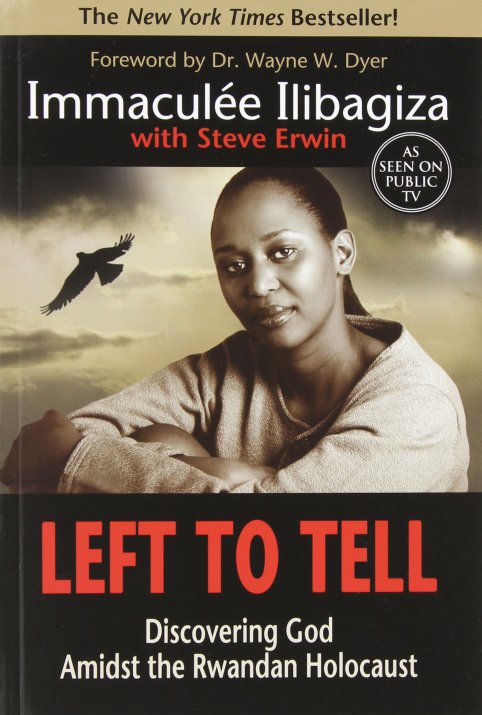
I’ve read this one before, but I loved it so much I wanted to read it again for the “Reading the World” challenge: Left to Tell, by Immaculée Ilibagiza.
This is the autobiography of a woman who was caught in the Rwandan genocide in 1994. A million people were killed in three months, most of them with machetes. Most of them by their neighbors. Some of them by their friends and family. Immaculée tells about the political and social climate that led to her ethnic group, the Tutsis, being hated and feared by the Hutus. After years of indoctrination, the ruling powers of Rwanda ordered the “extermination” of the Tutsi “cockroaches,” and people obediently went on a killing spree.
Immaculée survived this by hiding in a minister’s bathroom for 91 days with seven other women.
What I appreciate most about this book is that Ilibagiza tells how her experiences have strengthened her faith in God, and in humanity. She tells horrible, graphic, unthinkable things she has suffered, and then in the next breath, tells why she still has hope in the future, and why she still relies on God to help her. While most stories choose either to tell “good news” or “bad news,” Ilibagiza is dedicated to sharing truth—even hideous truth—and then giving you the courage to face it.
This book is not for children, obviously. But it’s a beautiful account of suffering and hope, and I would recommend it to anyone old enough to handle a brutal history. ♦
Advertisements Share this:




